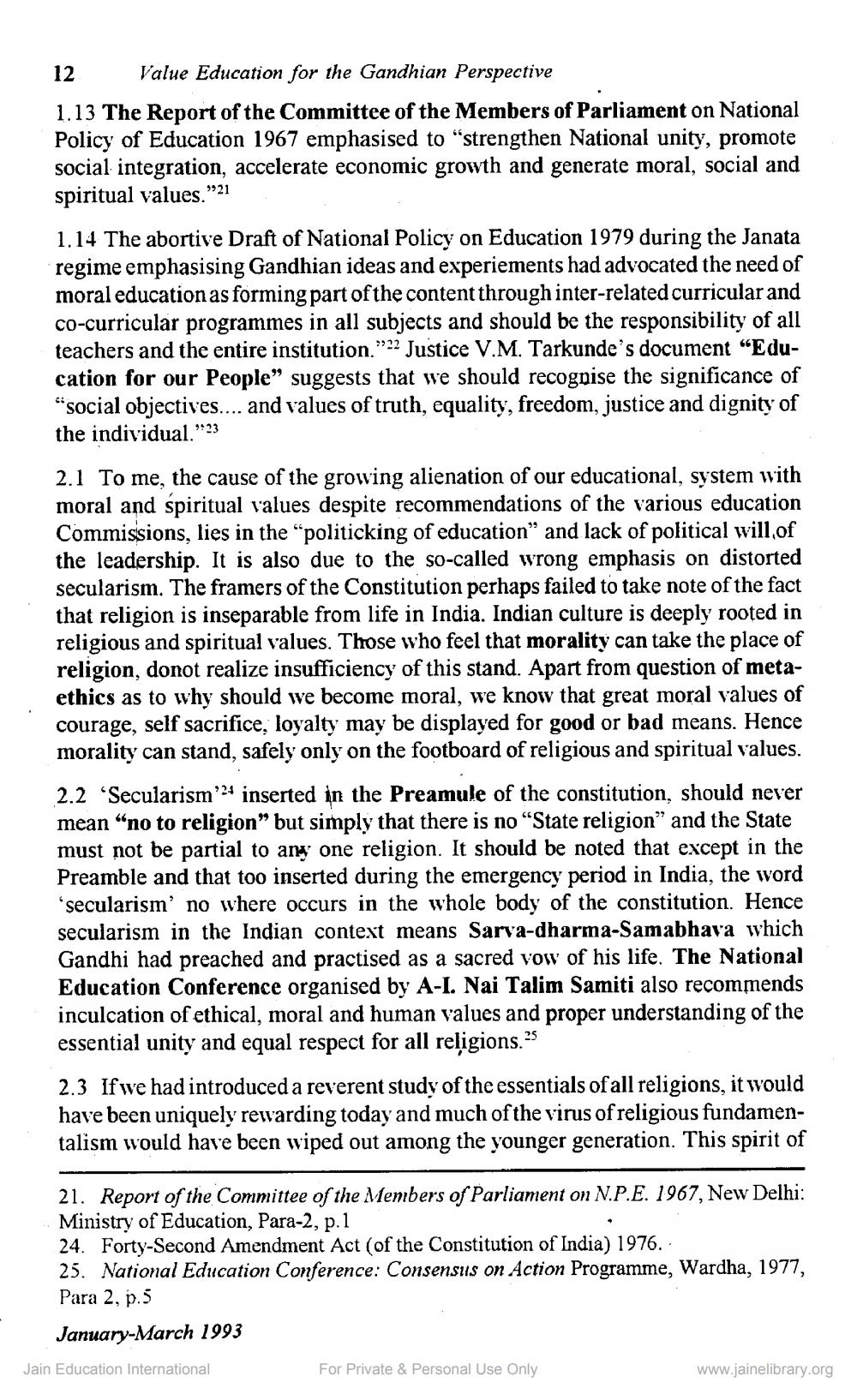________________
12
Value Education for the Gandhian Perspective
1.13 The Report of the Committee of the Members of Parliament on National Policy of Education 1967 emphasised to strengthen National unity, promote social integration, accelerate economic growth and generate moral, social and spiritual values. "21 1.14 The abortive Draft of National Policy on Education 1979 during the Janata regime emphasising Gandhian ideas and experiements had advocated the need of moral education as forming part of the content through inter-related curricular and co-curricular programmes in all subjects and should be the responsibility of all teachers and the entire institution."22 Justice V.M. Tarkunde's document “Education for our People” suggests that we should recognise the significance of "social objectives.... and values of truth, equality, freedom, justice and dignity of the individual."23 2.1 To me, the cause of the growing alienation of our educational, system with moral and spiritual values despite recommendations of the various education Commissions, lies in the “politicking of education" and lack of political will,of the leadership. It is also due to the so-called wrong emphasis on distorted secularism. The framers of the Constitution perhaps failed to take note of the fact that religion is inseparable from life in India. Indian culture is deeply rooted in religious and spiritual values. Those who feel that morality can take the place of religion, donot realize insufficiency of this stand. Apart from question of metaethics as to why should we become moral, we know that great moral values of courage, self sacrifice, loyalty may be displayed for good or bad means. Hence morality can stand, safely only on the footboard of religious and spiritual values. 2.2 'Secularism 24 inserted in the Preamule of the constitution, should never mean “no to religion” but simply that there is no “State religion” and the State must not be partial to any one religion. It should be noted that except in the Preamble and that too inserted during the emergency period in India, the word 'secularism' no where occurs in the whole body of the constitution. Hence secularism in the Indian context means Sarva-dharma-Samabhava which Gandhi had preached and practised as a sacred vow of his life. The National Education Conference organised by A-I. Nai Talim Samiti also recommends inculcation of ethical, moral and human values and proper understanding of the essential unity and equal respect for all religions." 2.3 If we had introduced a reverent study of the essentials of all religions, it would have been uniquely rewarding today and much of the virus of religious fundamentalism would have been wiped out among the younger generation. This spirit of
21. Report of the Committee of the Members of Parliament on N.P.E. 1967, New Delhi: Ministry of Education, Para-2, p.1 24. Forty-Second Amendment Act (of the Constitution of India) 1976. 25. National Education Conference: Consensus on Action Programme, Wardha, 1977, Para 2, p.5
January-March 1993
Jain Education International
For Private & Personal Use Only
www.jainelibrary.org




